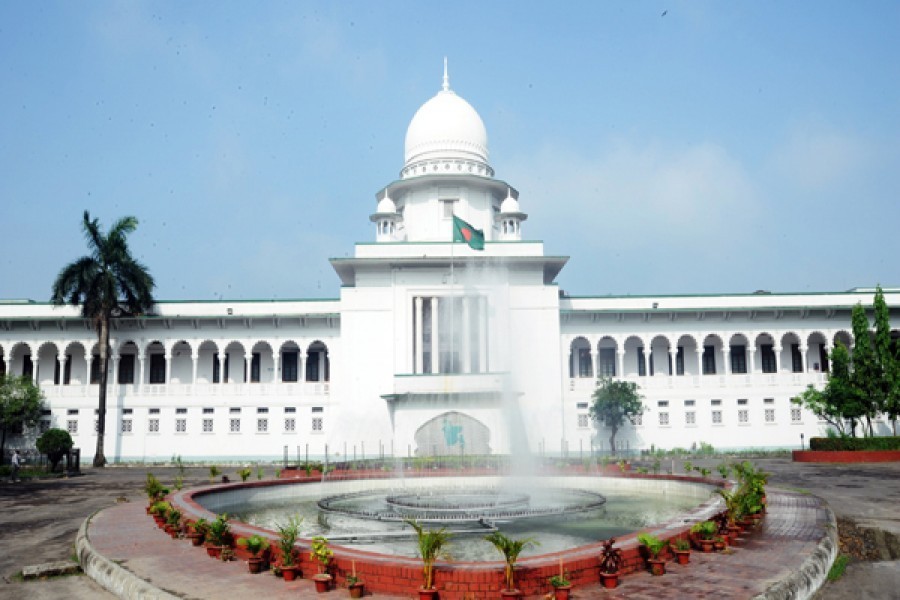The High Court has begun its second day of reading the verdict over the murders during the 2009 mutiny at the border guards’ headquarters in Dhaka city.
A three-member bench led by Justice Md Shawkat Hossain began the second day of announcing the verdict, shortly before11am on Monday.
Justice Md Abu Zafor Siddique and Justice Md Nazrul Islam Talukder are the other members of the larger bench formed in 2015 to hear the case, the largest in Bangladesh's history in terms of the number of convicts.
On Sunday, the High Court began reading its verdict at10:54am, when Justice Siddique spoke on the trial process and the Peelkhana massacre before reading out his observations.
At 4pm, the court was adjourned for the day to reconvene at10:30am on Monday, according to bdnews24.
In the observation of the case’s verdict on Sunday, Justice Siddique said: “It appears from discussions and reviews before and after the BDR mutiny that it was a conspiracy by a quarter with vested interest to hamper the stability of the state and socio-economic safety. It was an attempt to destroy a trained and skilled professional force through conspiracy.”
The court also praised the way the administration led by Prime Minister Sheikh Hasina put down the mutiny and handled its aftermath.
The mutiny that continued for two days eight years ago, a month after a new government took office, sent shock waves across Bangladesh and to the rest of the world.
Seventy-four people, including 57 army officers, were brutally murdered by the mutineers on Feb 25-26 in 2009.
In November 2013, a special court of an additional metropolitan sessions judge awarded the death penalty to 152 soldiers and non-commissioned officers of the erstwhile Bangladesh Rifles or BDR for the massacre.
The court sentenced 161 others to life in prison and 256 to three to 10 years in jail. It acquitted 277.
Never before had so many accused, 850 in total, been tried in a single case in the history of Bangladesh.
Four of the accused died during the trial while BNP leader Nasir Uddin Ahmed Pintu died after conviction.
After the mutiny, some suggested deeper conspiracies behind the rebellion, but police investigators concluded that the BDR personnel's grievances led them to revolt.
The trial court, in its verdict, observed that the mutiny was orchestrated with the motive to destroy the military security system and might have been engineered to weaken the economy.
It said involving the border guards in market activities like 'Operation Dal Bhat', introduced by caretaker government, had been 'unwise'.
The court believed there were intelligence 'gaps' that held back critical information of a brewing mutiny.


